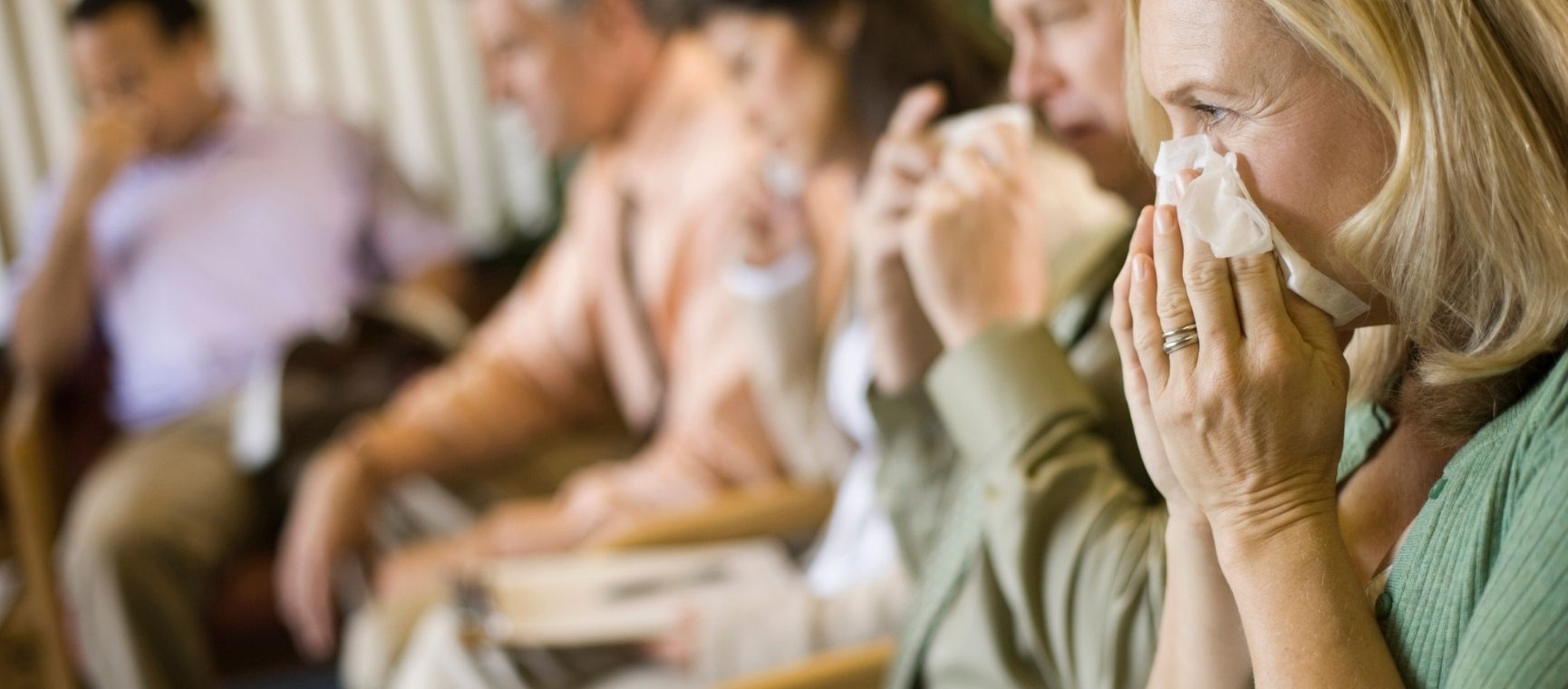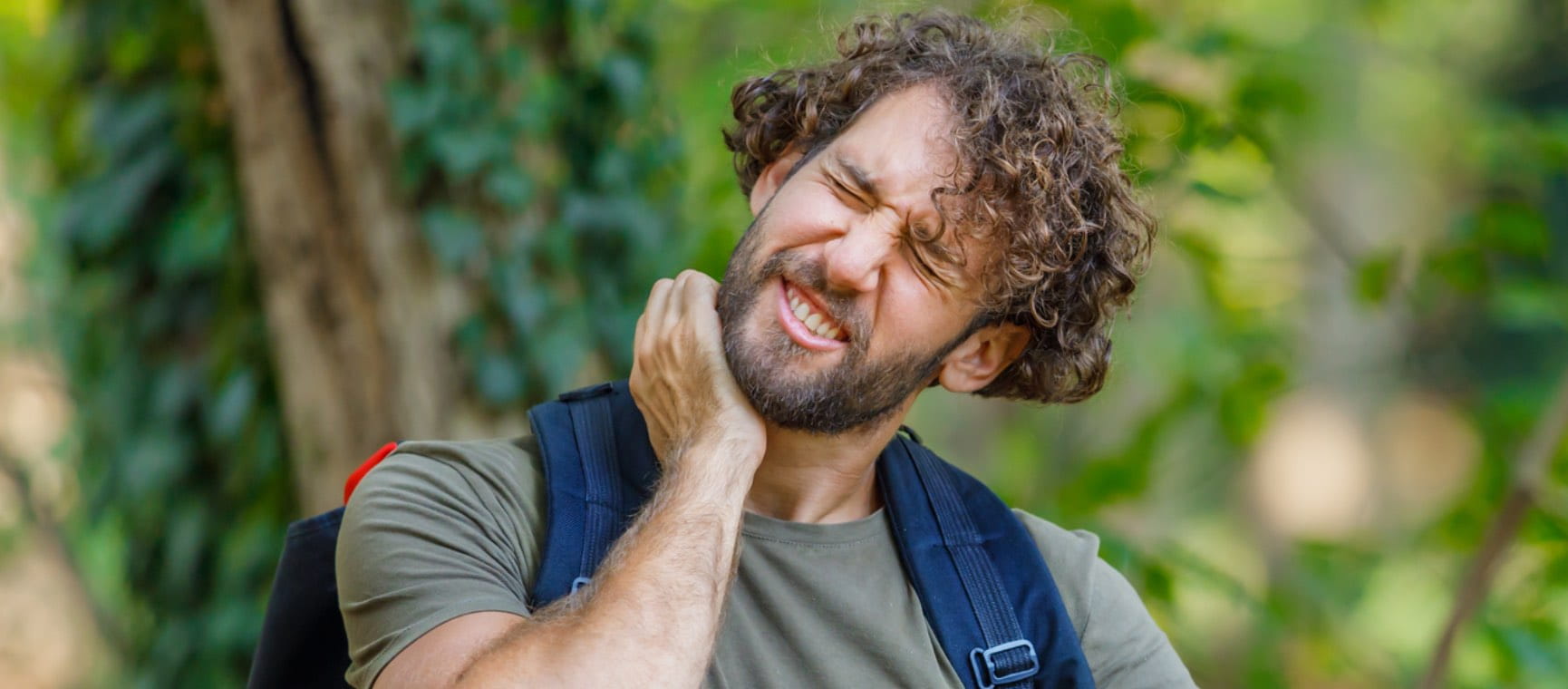Why you should be worried about flu – and what you can do about it
Flu cases are surging and putting NHS services under pressure. Find out why it’s a problem and how you can protect yourself.

Flu cases are surging and putting NHS services under pressure. Find out why it’s a problem and how you can protect yourself.

If you or someone you know has been struggling with a nasty virus over the last few weeks, you're not alone. The rise in flu admissions has led to "extreme pressures from one of the worst winters on record," according to the NHS.
The latest data shows there were 5,408 patients with the virus being treated in hospital in England at the beginning of January, which is 3.5 times higher than the same period last year. Professor Stephen Powis, NHS National Medical Director, said hospitals were facing "a deluge of flu cases".
The flu season also started early, with high numbers of hospitalisations at the end of November and the start of December. This meant that record numbers of patients were in hospital for the time of year The ongoing high demand for hospital beds has also led to pressures on ambulance services and time lost to handover delays. Last week, several hospitals in England declared critical incidents, although some have since been suspended.
Dr Simon Williams, a behavioural scientist and public health researcher at Swansea University, told Saga Magazine: "Flu is definitely a big problem this year. It’s causing a considerable number of hospitalisations and is contributing to significant pressure on the NHS.
"This has been a relatively early and very sharp spike in flu cases, which along with other viruses like norovirus and RSV has meant that most people will have either been unwell or know someone who has this winter.”
Some London hospitals have reintroduced mandatory masks for staff and patients, and some have have also restricted hospital visiting.
In Northern Ireland, flu vaccine eligibility has been extended to those age 50-plus (it is 65-plus in the rest of the UK), in response to surging cases. The charity Asthma and Lung UK has called for the same extension of eligibility in the rest of the UK.
Meanwhile walk-in vaccination centres have opened across North Wales following a sharp spike in the number of flu case there.
The latest data from the UK Health Security Agency (UKHSA) shows that flu is circulating at high levels, with case numbers and hospitalisations now approaching the numbers seen in the 2022-23 season.
Flu can make some people seriously ill, and this is becomes more likely if you're over 65 or have other health problems. This week Carrie Johnson, wife of the former prime minister Boris Johnson, said she had been in hospital for nearly a week with flu and pneumonia.

Dr Mary Ramsay, Director of Public Health Programmes at the UKHSA, told Saga Magazine: "The previous flu season (2023-24) was relatively mild with moderate levels of flu and we're currently seeing higher levels of flu than we did last winter.”
She added: "Flu levels typically begin to increase from December each year, but the point at which flu peaks each season varies, and is based on a range of factors, including global influenza activity, social mixing patterns, levels of immunity from previous strains, vaccine uptake, and effectiveness.
"These peaks are also influenced by the type of strain in circulation – in some seasons we may see a second peak if a new strain becomes dominant, and it is therefore still important to take up the vaccine if you are eligible.”
Some people are referring to a “quad-demic” – the fact that flu, Covid, RSV and norovirus are all circulating. We hear of a "triple-demic" every winter, but this winter norovirus has been added into the mix. But it seems to be flu that is causing the biggest issues.
Prof Sir Andrew Pollard, Director of the Oxford Vaccine Group, said: “Human metapneumovirus virus is a common respiratory virus which was first identified almost a quarter of a century ago by Dutch scientists. The virus is known to cause a respiratory illness in babies and in the elderly which can result in hospitalisation, but in most other age groups it simply causes the symptoms of a cold. It is one of the many viruses which circulate in the winter and add to the winter pressures on the NHS.
“The reports of respiratory infections in China appear to be attributed to both influenza and this human metapneumovirus, which is rather similar to the situation in the UK this week."
HMPV is similar to RSV. Older people can now be vaccinated against RSV on the NHS (though not if you're over 80). New vaccines are being developed which could protect against both RSV and human metapneumovirus in one jab.

The vaccines being used this year are quadrivalent, which means they protect against four strains of flu. A specific version of the vaccine, aQIV, is the one recommended to over-65s. This has added ‘adjuvant’ to make the vaccine more effective. While there were some early reports from US that this year's vaccine might not be a good strain match, there isn't any evidence to support that in the UK.
Dr Jamie Lopez Bernal, Consultant Epidemiologist at the UKHSA, told Saga Magazine: “Vaccine effectiveness varies each season depending on the strain match. Whilst it’s too early to determine the UK’s vaccine effectiveness this season, so far, we have mainly seen Flu A H1N1 clade 5a.2a, and the World Health Organisation has concluded that the H1 component is well matched to the circulating H1N1 clade 5a.2a.
“Vaccine effectiveness is also different for different age groups in the population, and because protection levels are lower in older people, we recommend different types of vaccine in different age groups. For this reason, results from another country may not reflect what we expect to see in the UK.”
It's best to get vaccinated as early in the season as possible to protect yourself. But there’s still time to get the vaccine. If you’re eligible for a NHS vaccine, the cut-off date for this season is March 31.
If you're eligible, the national vaccination booking system in England has now closed, but you can still get jabs for flu, Covid-19 or RSV by visiting a Covid walk-in vaccination site, or finding a pharmacy offering the flu vaccine.
You can also still pay for a vaccine privately at most pharmacies, including some supermarket pharmacies.
Read more about the vaccinations you need this winter.
UKHSA data suggests those aged between five and 14 are the most likely to test positive for flu, but it is older people who are predominantly treated in hospital with the virus aged 85 years and over.

Are you retiring at the wrong age? The best age to retire for your body, brain, happiness and pocket.


Everything you need to know about the lung infection, and how you could be ill with “walking” pneumonia without realising it.

Strong calves for a strong mind: how they support our circulation and brain health, with easy moves to strengthen yours at home.


Our GP Dr Mark Porter explains what can cause itchy skin, which is a common problem as we get older.

Worried you’ve morphed into Victor Meldrew? Find out how to battle that bad mood, and what to do if you’re stuck with a grouchy loved one.

The benefits of heat and cold therapy, and how Nordic bathing won over our nervous writer.

Here’s how to spot the symptoms of heat disease and reduce your danger.


The NHS winter vaccination campaign kicks off next week. Here’s the lowdown on what you need to book.

Pilates for back pain – what to do if you are suffering, and five gentle exercises that could help.

Dizziness or vertigo: a sensation of spinning, can stop us doing everyday things for fear of falling. Try these tips to stop feeling dizzy


You don’t have to put up with bladder leaks. We try out the latest pelvic floor gadgets for men and women.

Cataracts are a normal part of ageing. Learn how to spot the signs – and when it’s time to consider surgery.